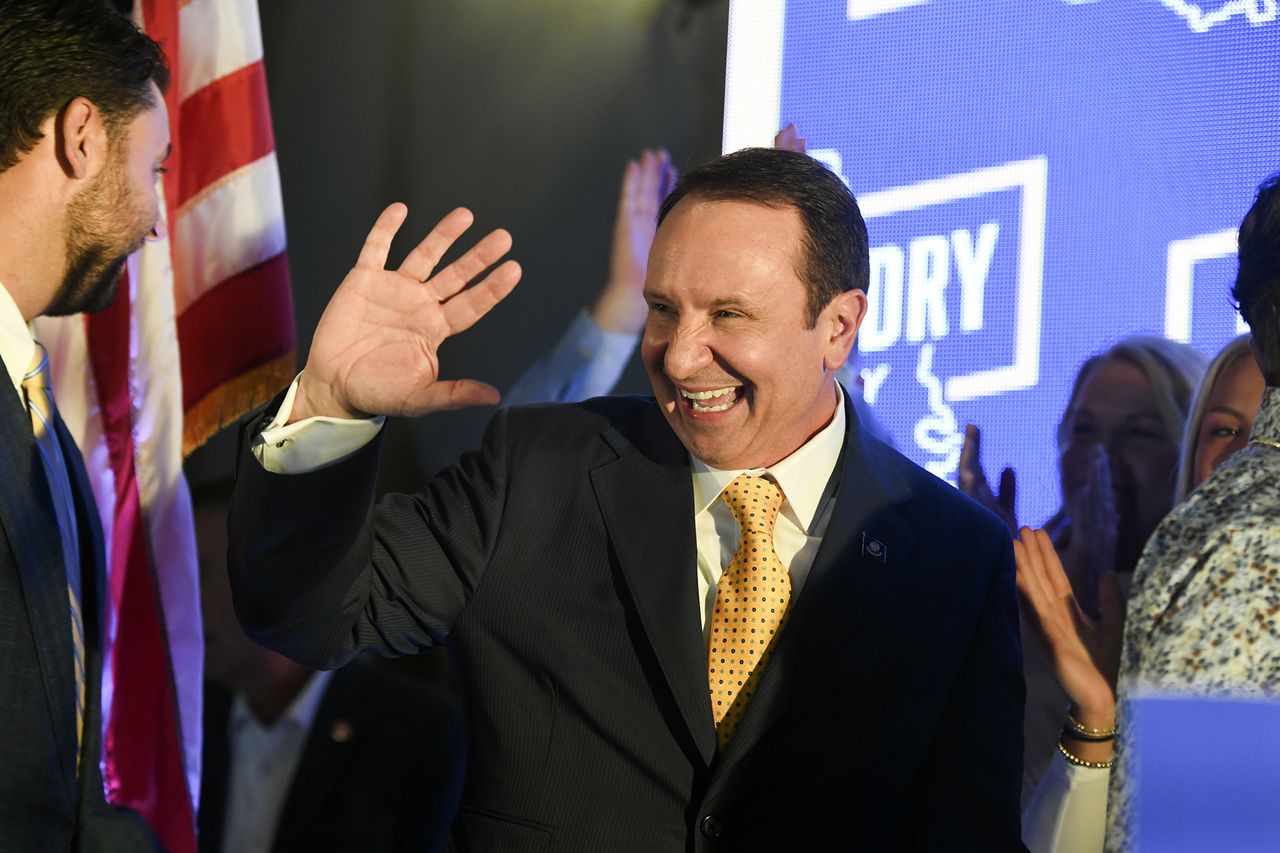Jeff Landry, Louisianaâs governor-elect, has a long history of fighting environmental progress
As you may have heard, Louisiana’s Attorney General, Jeff Landry, will be the state’s next GOP governor after a landslide victory Oct. 14.
Landry, who has downplayed the significance of human-driven climate change and is a major supporter of increasing the state’s energy production, has consistently used his power as the state’s top lawyer to block attempts to rein in fossil fuel companies in Louisiana and throughout the country.
For example, AG Landry was among the state attorneys general who challenged the Obama administration’s Clean Power Plan, which aimed to regulate carbon dioxide emissions from power plants. He supported the Keystone XL Pipeline and opposed actions hindering its completion.
And has taken legal actions to defend and support oil and gas leasing in federal waters, especially given the importance of the industry to Louisiana’s economy.
He’s not expected to change his ways when he ascends to the state’s top political position Jan. 8.
Here are some of the most recent federal environmental cases in which Landry has been involved on behalf of Louisiana.
Clean Air Act Waiver: California Advanced Clean Trucks Regulation
In March 2022, the EPA reinstated California’s ability under the Clean Air Act to implement its greenhouse gas emission standards and zero-emission vehicle sales mandates. Subsequently, in April 2023, the California Air Resources Board approved a regulation mandating diesel medium- and heavy-duty on-road vehicles to be gradually replaced by zero-emission vehicles. The AGs challenged the EPA’s approval of this regulation, claiming that California’s regulation would force other states to abide by California’s standards and raise costs nationwide.
Waters of the United States Rule
Landry joined other states in challenging a new Waters of the United States (WOTUS) rule decades in the making. It sought to clarify the scope of federal jurisdiction over various water bodies, including streams, wetlands, and other water bodies under the Clean Water Act. Critics argue the rule is federal overreach, while the government said the rule was crucial because of how flooding can, for example, allow farm cesspools to overflow and join other nearby bodies that are already federally regulated.
The district court issued a preliminary injunction blocking the policy in April 2023. The injunction is now being appealed to the Eighth Circuit.
Louisiana vs. Federal Emergency Management Agency (DHS)
National Flood Insurance Risk Programs
In October 2021, FEMA revised the methodology to determine rates under the National Flood Insurance Program. This new “Risk Rating 2.0″ addresses rating disparities with more flood risk variables. The idea was that the ratepayers would be charged premiums more equitably. Previously, a person living in a $20,000 trailer would be charged the same as someone in a $3 million home. That new rate would charge the owner of the more expensive home since it would cost far more to fix damage or rebuild. The owner of the cheaper home would pay less. Ten states challenged the new system, arguing that “While the agency (Federal Emergency Management Agency) paints a picture of nuanced calculations using massive data repositories that reveal a property’s individualized risks, the reality is much simpler: Flood insurance is going to be much more expensive for pretty much everybody,” according to the lawsuit. The case is pending.
Texas v. National Highway Traffic Safety Administration
Fuel Economy Standards for Vehicles
The AG coalition filed a petition for review challenging the National Highway Traffic Safety Administration’s (NHTSA) corporate average fuel economy standards (CAFE) for specific cars and light trucks. The AGs contend that the NHTSA violated the express statutory prohibition on mandating electric vehicles in setting the CAFE standards.
The case is pending.
Greenhouse Gas Regulations for Vehicles
This lawsuit challenges a Biden Administration EPA rule about greenhouse gas emissions from cars and trucks. According to the plaintiffs, the regulations will impose significant economic harm on the states by stressing their electric grids and decreasing the need for gasoline by billions of gallons. The rules “far exceed EPA’s authority and violate the U.S. Constitution’s separation-of-powers principles,” according to the plaintiff states.
The case is pending.
Lead and Copper in Drinking Water
This Trump-era rule was expected to quicken the speed at which cities need to notify people who may have been exposed to lead but give utilities a longer timeline to replace lead-tainted service lines. When Biden came into office, his EPA delayed the ruling from taking effect, known as the “Delay Rule.” The AGs argue that the Biden Administration’s cost-benefit analysis further reveals that the “Delay Rule” is a bad policy and will result in adverse health effects that exceed the reduced costs on water system operators. In August 2023, the D.C. Circuit dismissed the case due to a lack of state standing.
Executive Order on Social Costs of Greenhouse Gases
The AG coalition filed suit to block President Biden’s executive order requiring agencies to calculate the social cost of carbon dioxide, methane, and nitrous oxide when enacting regulations. The states argue that the sweeping executive action covers “topics as diverse as vending machines, dishwashers, dehumidifiers, microwave ovens, residential water heaters, residential refrigerators and freezers, fluorescent lamps, residential clothes dryers, room air conditioners, residential furnaces, residential air conditioners, and battery chargers, just to name a few.”
The district court issued a preliminary injunction blocking the policy on 2/11/22. The federal defendants appealed to the Fifth Circuit, which reversed the district court and dismissed the case due to a lack of state standing.
